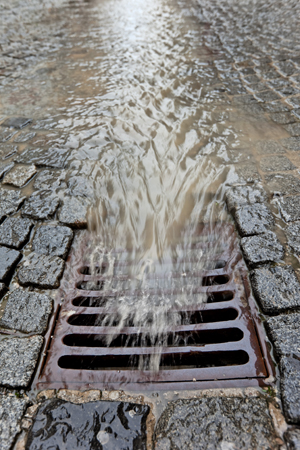 RTP’s experts have and continue to provide clients with
effective stormwater management plans (SWPPP or SWP3) that meet or
exceed applicable requirements without adding unnecessary,
superfluous tasks that further encumber facility employees.
RTP’s extensive knowledge of regulatory requirements, best
management practices (BMPs) and facility operations provides each
facility with a comprehensive, common sense approach for
stormwater management. RTP’s experts have and continue to provide clients with
effective stormwater management plans (SWPPP or SWP3) that meet or
exceed applicable requirements without adding unnecessary,
superfluous tasks that further encumber facility employees.
RTP’s extensive knowledge of regulatory requirements, best
management practices (BMPs) and facility operations provides each
facility with a comprehensive, common sense approach for
stormwater management.
RTP typically works with the project team to review construction
and development plans or pre-bid packages to reduce regulatory
burdens and provide proactive information early in the project to
reduce cost overruns and/or time delays.
Federal, State and Local agencies regulate stormwater at a site
and the requirements are geared to two separate aspects;
Stormwater Associated with Construction
and
Stormwater Associated with Industrial Activities.
RTP can provide you with the necessary guidance for maintaining
compliance with applicable stormwater requirements. Typical
activities associated with stormwater management include a review
of site specific plans and control devices, a review of current
facility monitoring and recordkeeping activities. RTP will
also perform an evaluation of potential cross-media benefits.
For example, LDAR is an air program requirement but can
often be used to augment stormwater inspections as it is a
detailed and up-close inspection of certain piping.
Therefore, one inspection may be useful for multiple
programs. RTP’s vast knowledge of multi-media
benefits the facility by defining potential overlapping activities
and recordkeeping to ultimately reduce staff time and improves
efficiency of the overall environmental program. Each SWPPP
typically includes a registration, known as a Notice of Intent
(NOI), which is provided to the regulatory agency. In
addition, each SWPPP must be specific to the project and all
proposed/existing activities and must be kept on-site.
RTP staff has and continues to obtain stormwater authorizations in
multiple states for numerous types of projects. RTP is
experienced with both general and individual stormwater permits.
RTP’s experienced staff can participate in
pre-application conferences, appeal hearings, public hearings, and
agency audits and inspections. We successfully assist clients in
the preparation of plans, inspection checklists and sampling and
monitoring plans. RTP can also provide on-site training and
third party inspections to determine the efficacy of BMPs and the
compliance status of the site with respect to stormwater
requirements. RTP can also help prepare incident reports and
Notices of Termination (NOT).
SWPPP Associated with Construction
The requirements for storm water associated with construction
permits are regulated by the provisions of the Clean Water Act.
Typically, States have more stringent requirements and
sometimes local municipalities such as a County or Town have
additional rules that must be followed. Stormwater permits for
construction activities are usually required for projects that
disturb one (1) acre or more and are often issued under a general
permit. The general permit requires implementation of a
Storm Water Pollution Prevention Plan (SWPPP) which must
incorporate any required pollution control measures during
construction activities. In addition, a Notice of Intent
(NOI) must be submitted to the regulatory agency prior to
commencing pre-construction dirt work.
SWPPP Associated with Industrial Activities
Similar to stormwater associated with construction activities
requirements, the permit requirements for stormwater associated
with Industrial Activities are outlined in the Clean Water Act.
Typically, States have more stringent requirements and
sometimes local municipalities such as a County or Town have
additional rules that must be followed. Storm water permits for
industrial activities are usually issued under a general permit.
The general permit requires implementation of a Storm Water
Pollution Prevention Plan (SWPPP) which must incorporate any
required pollution control measures during operation of the
facility. Similar to construction related stormwater
requirements, a Notice of Intent (NOI) must be submitted to the
regulatory agency prior to facility start-up.
|